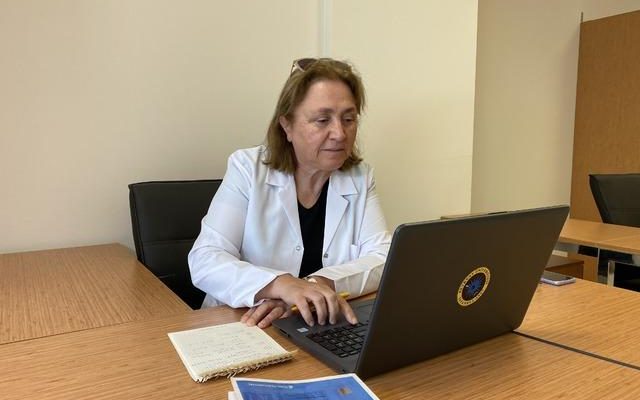While the coronavirus, which affected the world after its emergence in China in 2019, continues to exist with its sub-variants, the Eris variant seen recently has caused concern. Minister of Health Fahrettin Koca said in his statement, “The virulence of the Eris variant is lower, but its contagiousness is higher. We can say that the number of patients increased in this period. However, the hospitalization rates are quite low. There is no need to panic,” while experts also gave information about the Eris variant.
“FLU IS LIKE A FLU”
Head of the Department of Infectious Diseases and Clinical Microbiology, Beykent University Faculty of Medicine, Prof. Dr. Emine Sönmez stated that she did not expect any restrictions due to Eris and made evaluations about the progress of the cases.
Prof. Dr. Emine Sönmez said, “Eris has been talked about a lot lately. With Eris, Covid came to the fore again. Variants and mutations continued, and the epidemic peaked with the latest Omicron variant. This is a sub-variant of Eris de Omicron, causing very mild clinical cases. A case was first reported in Indonesia in February. Then, in July and August, the World Health Organization reported it as a notable variant. We are currently seeing the Eris variant spreading rapidly in the USA, UK, Japan and nearly 50 countries. Indeed, the Eris variant is a virus that spreads very rapidly, but it has a very mild course. The number of cases is high, mild respiratory infections and flu are similar to the flu, and the number of inpatients is almost non-existent. “Both healthcare professionals and sick people need to be careful not to infect others and to prevent the severe course of the disease,” he said.
“THE SPREAD WILL INCREASE FURTHER IN THE WINTER MONTHS”
Answering the question whether there is a symptom that distinguishes the Eris variant from other variants, Prof. Dr. Emine Sönmez said, “We cannot distinguish the variants by looking at the symptoms. There is a sore throat, fever, a stinging feeling in the throat, muscle and joint pain, in some cases diarrhea, and in some cases a disturbance in smell and taste, but it is very mild. The patient recovers in 3-4 days rather than 1 week and 10 days, and if there is no underlying disease, he recovers quickly. All respiratory infections generally increase during the winter months. Because there are more crowded people in closed spaces. I think the spread of the Eris variant will increase during the winter months. I think there is an increase in respiratory infections, such as flu and other respiratory infections, all together. If elderly patients, those over the age of 65, or those with chronic diseases are receiving cancer treatment or taking medications to suppress immunity, they may also have a severe course. That’s why we need to pay attention. It also has a mild course in children. Personal hygiene for children; hand washing, toilet cleaning, ventilation of classrooms, and these precautions should be taken in schools. I recommend the mask for adults and those with chronic diseases for indoor spaces. “Both of the new variants are spreading rapidly, they spread very quickly, but they do not cause severe disease,” he said.
“I DO NOT THINK THERE WILL BE RESTRICTIONS”
Speaking on the effect of vaccines against new variants, Prof. Dr. Sönmez said, “The vaccines made so far, MRNA vaccines, were effective against Omicron, this is the sub-strain (subspecies) of Omicron, the vaccines are not thought to be very effective in these sub-strains, new strains. New vaccines are currently being developed for new strains. We recommend the flu vaccine every fall. I think we can recommend it to people with chronic diseases and risk groups for coronavirus. I don’t think there will be a complete closure or restriction. The cases are mild. If people took their own precautions, maybe they would reduce this spread. My suggestion; I recommend wearing a mask in closed spaces, in the cold, in crowded areas, such as subways, planes, metrobuses and buses. Other than that, there are no restrictions, but hand hygiene, sneezing, and coughing into a tissue or sleeve are necessary. There will always be viral infections, and there will also be infections with different viruses. We cannot avoid respiratory infections, and it is difficult to develop a vaccine for every virus. We have to keep our immune system strong. A balanced diet is very important, you need to consume protein, vitamin D and C supplements. Regular sleep and night sleep are important. Exercise and managing stress are also important. For patients, if they have respiratory symptoms, a sore throat, sneezing or coughing, they should stay at home if possible. To protect other people, he should stay home and rest for a few days. “One should overcome the disease mildly at home and then integrate into society,” he said.
Source: UAV
